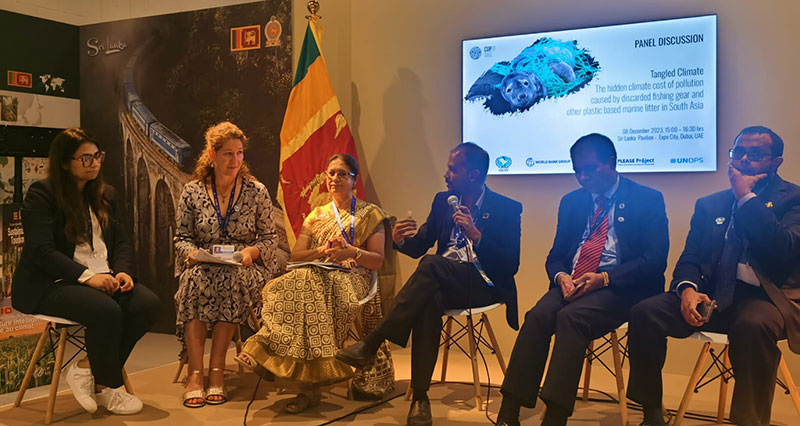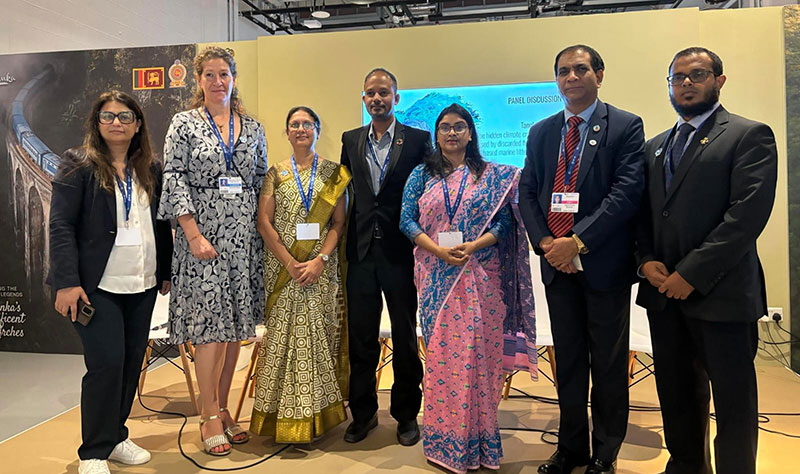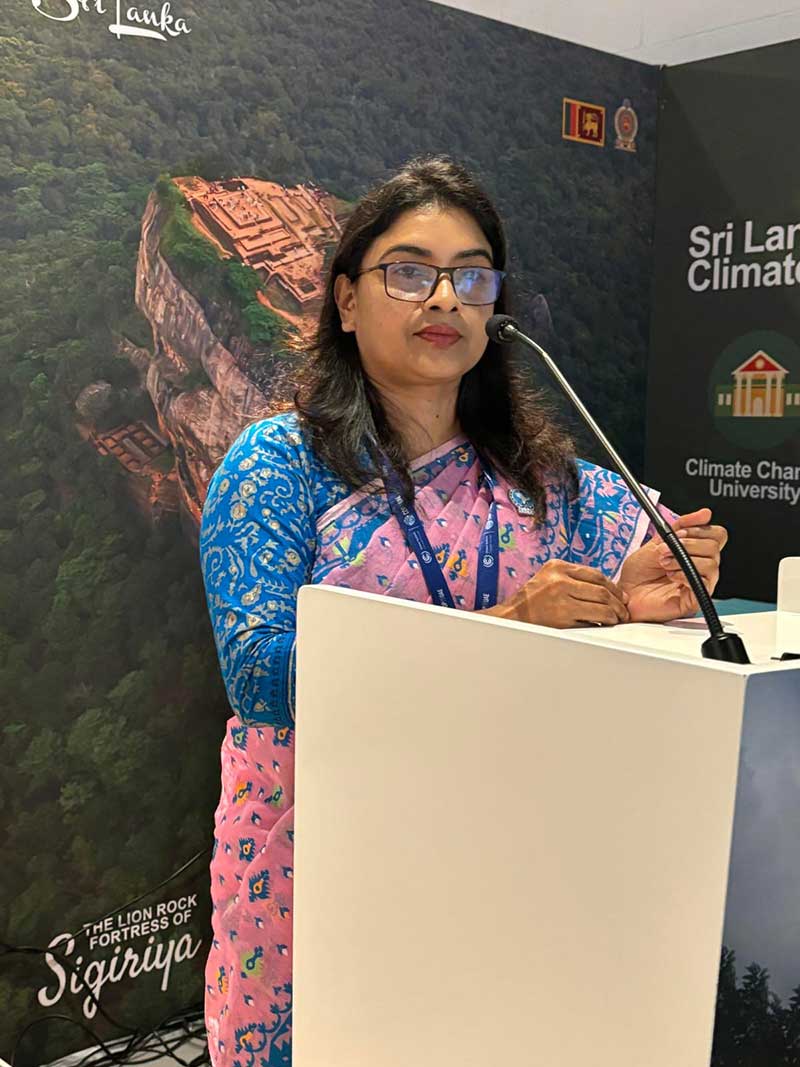December 12, 2023

The recent event, "Tangled Climate: The Hidden Climate Cost of Pollution Caused by Discarded Fishing Gear and other Plastic-based Marine Litter in South Asia," held at the Sri Lanka Pavilion in Expo City, Dubai, on 08th December 2023 delved into the critical issue of plastic pollution in the marine environment. Against the backdrop of approximately 11 million metric tons of plastic waste entering the ocean annually, with marine sources contributing to 20% of this pollution, the session focused on the significant role of Abandoned, Lost, or otherwise Discarded Fishing Gear (ALDFG), commonly known as 'ghost gear.' Studies revealing the persistent threat of certain fishing gear lasting up to 600 years underscored the urgency of addressing this environmental challenge.
The welcome speech was delivered by Ms. Rokeya Khaton, Director General of South Asia Corporative Environment Programme (SACEP) while the session was moderated by Simonetta Siligato, Senior Advisor at UNOPS Asia Region.
The panelists; Mrs. Anjalie Deveraja, Project Director of the PLEASE Project at the South Asia Co-operative Environment Programme, Mr Sanjaykumar Bhowrmik Additional Secretory, Ministry of Environment, Forest and Climate Change, Bangladesh, Dr Saima Shafiq, Ministry of Climate Change, Pakistan, Mr. Ali Shareef, Special Envoy for Climate change, Maldives, marked the session with their perceptive discussions.
The event showcased the World Bank's study, "Tangled Seas: A Snapshot of Abandoned, Lost, or Otherwise Discarded Fishing Gear in South Asia (2023)." The subsequent panel discussion brought together representatives from the South Asia Co-operative Environment Programme (SACEP) and SACEP Member States. Their collaborative efforts aimed to share regional and country-specific insights, exchange policy frameworks, and explore strategies, including regional collaboration, to mitigate the transboundary impact of marine pollution. By highlighting successes, challenges, and proposing solutions, the event served as a crucial step toward fostering sustainable practices and policies to combat the pervasive threat of plastic-based marine litter in South Asia.

